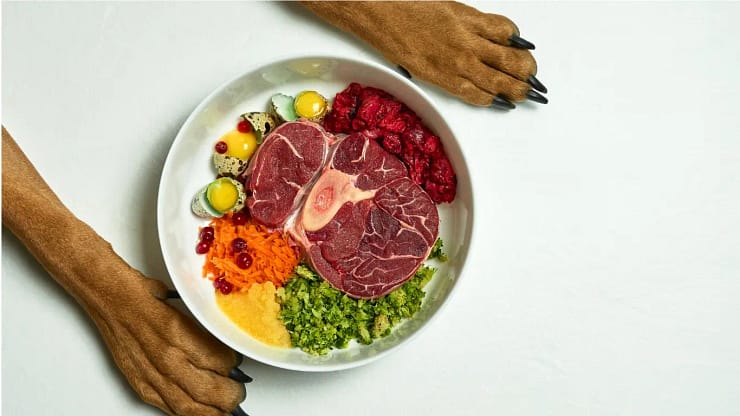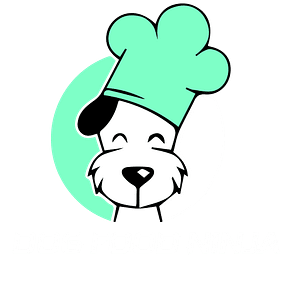Are you staring into your senior dog’s trusting eyes, wondering if the food you’re providing meets their complex nutritional needs? As dogs age, their dietary requirements change dramatically, needing a balance between specific nutrients and controlled calories. The market is flooded with food brands claiming to be ‘the best,’ leaving you in a sea of confusion and guilt. Let’s navigate this maze together and find the healthiest dog food for your elderly canine companion. Remember, they depend on you for their golden years to truly shine.

Table of Contents
ToggleWhat Is The Best Thing To Feed An Old Dog?
Senior dogs often experience metabolic changes and decreased energy levels and may have certain age-related health conditions like arthritis, kidney disease, or obesity. Consequently, their diet should be carefully formulated to address these concerns while maintaining a balanced intake of nutrients.
A healthy diet for older dogs should be lower in calories but high in high-quality proteins to maintain lean body mass. Foods rich in Omega-3 fatty acids can support joint health, while fiber can help digestion. Additionally, diets with controlled sodium levels are good for heart health.
Feeding your senior dog a diet specifically formulated for their age group can be a good starting point. But remember, each dog is unique, and their diet should also be tailored to their health status and lifestyle. Regular vet check-ups are crucial in assessing these needs.
What Are The Three Best Foods For Dogs?
A range of high-quality commercial dog foods is available that cater to senior dogs’ specific needs. Here are the three standouts:
Blue Buffalo Life Protection Formula Senior Dog Food: This brand is well-known for its natural, high-quality ingredients. The old formula contains high-quality protein from real chicken, whole grains, garden veggies, and fruit. It’s also supplemented with their veterinarian-selected LifeSource Bits – a blend of antioxidants, vitamins, and minerals.
Hill’s Science Diet Dry Dog Food, Adult 7+ for Senior Dogs: Designed specifically for dogs over seven, this brand provides balanced nutrition tailored for older dogs.
Nutro Ultra Senior Dry Dog Food: This dog food offers a blend of 15 vibrant superfoods like chia, kale, and coconut, along with high-quality proteins from chicken, lamb, and salmon. It’s an excellent choice for comprehensive nutrition to keep your senior dog healthy.
What Is The Number One Healthiest Dog Food?
Choosing the ‘healthiest’ dog food depends largely on your pet’s needs. However, one brand that stands out regarding overall nutrition and customer satisfaction is the “Orijen Senior Grain-Free Dry Dog Food”.
According to Orijen’s philosophy, their old formula mimics the variety, freshness, and quantity of meats dogs evolved to eat. A biologically appropriate diet includes free-range chicken and turkey, wild-caught fish, and cage-free eggs. It’s also grain-free, limiting unnecessary carbohydrates.
The added fruits, vegetables, and botanicals provide the necessary vitamins, minerals, and antioxidants, making it a complete and balanced diet for senior dogs.
However, remember that diet isn’t the only component of a healthy lifestyle for your senior dog. Regular exercise, mental stimulation, routine vet check-ups, and, most importantly, your love and attention will also contribute to their overall health and well-being.
What Dog Food Is Easily Digested For Older Dogs?

Digestibility is an essential factor when selecting food for older dogs. As dog’s age, their metabolism slows down, and they may experience difficulties digesting certain types of food. A highly digestible diet will ensure your senior dog gets all the necessary nutrients. Look for dog food that includes high-quality, easily digestible proteins, such as chicken, turkey, or fish.
Whole grains, like brown rice or oats, can provide the carbohydrates needed, while fruits and vegetables deliver essential vitamins and minerals. Moreover, foods fortified with probiotics can further aid in digestion.
What Age Is Considered A Senior Dog?
The age at which a dog is considered “senior” depends on its size and breed. Generally, smaller dogs, like Chihuahuas or Shih Tzus, are considered seniors around 10-12. Large breed dogs, such as Great Danes or Saint Bernards, are often classified as senior as early as 5-6 years. Your vet can help determine when your dog reaches their senior years and advise on any necessary dietary adjustments.
How Many Times A Day Do You Feed A Senior Dog?
The frequency of feeding a senior dog stays the same from their younger years. Most dogs are fed twice daily, which can continue into their senior years. However, portion size or calorie content may need to be adjusted. Aging dogs are less active and hence have a lower caloric need. Overfeeding can lead to obesity, causing further health problems. It’s essential to consult with your vet to establish the right feeding portions for your senior dog.
Do Senior Dogs Need Special Food?
Senior dogs, indeed, have different nutritional requirements compared to their younger counterparts. They generally need lower-calorie food with higher amounts of high-quality protein to maintain muscle mass. Food for senior dogs should also include added fiber to promote digestive health and less fat to prevent weight gain. Many dog food brands offer formulas specifically tailored for senior dogs, taking these needs into account.
What Dog Food Do Vets Not Recommend?
There is a range of dog food in the market that vets often advise against. These usually include brands that use low-quality ingredients, additives, artificial colors, and flavors. While these foods might be cheaper, they can be less nutritious and harder for your dog to digest. Choosing a dog food brand that prioritizes high-quality, natural ingredients and avoids unnecessary fillers is recommended.
The Number One Meat You Should Never Feed Your Dog
While meat is a critical part of a dog’s diet, not all types are safe or healthy. The number one meat you should never feed your dog is raw pork. This meat can contain a parasite known as trichinella, causing a serious illness known as trichinosis. It is possible to kill this parasite by cooking pork thoroughly, but many vets advise dog owners to avoid pork altogether in their diets.
Soft Dog Food For Senior Dogs With Bad Teeth
Senior dogs often struggle with dental issues, making eating kibble challenging. In such cases, soft dog food can be a good option. Many high-quality wet foods are available on the market, which provides the same balanced nutrition as kibble but in a format easier for a senior dog to manage. Some brands also offer “senior” formulas in wet food,
Conclusion
In conclusion, selecting the healthiest dog food for senior dogs is important in ensuring their overall well-being and quality of life. As dogs age, their nutritional needs change, and providing them with a diet that supports their aged bodies is important. The healthiest dog food for senior dogs should be specifically formulated to address their unique requirements, such as joint support, weight management, and digestion.
When choosing the ideal dog food, it is recommended to opt for products that contain high-quality protein sources, essential fatty acids, and a balanced blend of vitamins and minerals.
FAQs
Why does my senior dog act hungry all the time?
Senior dogs may act hungry all the time due to various reasons, including:
Metabolic Changes: As dog’s age, their metabolism slows down, which can lead to increased feelings of hunger. That is because their body may not efficiently utilize nutrients, requiring them to eat more to meet their energy needs.
Reduced Nutrient Absorption: Older dogs may experience reduced nutrient absorption in their digestive system, leading to decreased efficiency in extracting nutrients from their food. That can increase hunger as their body seeks to compensate for the shortfall.
Underlying Health Issues: Certain medical conditions such as diabetes, hyperthyroidism, or gastrointestinal problems can cause increased hunger in senior dogs. These conditions can affect metabolism, hormone levels, or digestion, leading to a constant feeling of hunger.
Dental Problems: Dental issues like gum disease or missing teeth can make it difficult for senior dogs to chew their food properly. As a result, they may feel hungry more often due to the reduced satisfaction from eating.
Why is my 15-year-old dog not eating?
If your 15-year-old dog is not eating, several factors could be contributing to this behavior, including:
Health Issues: Loss of appetite can indicate an underlying health problem in senior dogs. Conditions such as dental disease, gastrointestinal disorders, kidney disease, liver problems, or cancer can affect their appetite and overall well-being.
Medications or Treatments: Some medications or treatments can cause dogs to lose their appetite. If your senior dog has recently started a new medication or undergone medical procedures, it’s worth considering these as potential causes for their reduced appetite.
Changes in the Environment: Senior dogs can become sensitive to changes in their environment or routine as they age. Moving to a new house, adding a new family member, or changing feeding or exercise schedules can lead to stress or anxiety, resulting in a decreased appetite.
What to do if an old dog won’t eat?
When an old dog refuses to eat, there are several steps you can take:
Assess the Situation: Determine if there have been any recent changes in your dog’s environment, routine, or diet that might be causing stress or discomfort. Rule out any obvious reasons for losing appetite before seeking veterinary advice.
Offer Palatable Food: Try offering various high-quality, palatable food options to entice your old dog to eat. Consider warming the food slightly or adding low-sodium broth to make it more appealing. Sometimes, a change in texture or flavor can make a difference.
Ensure a Calm Environment: Create a calm and quiet feeding area for your dog, away from distractions. Minimize noise, disturbances, and the presence of other animals that might affect their eating habits.

